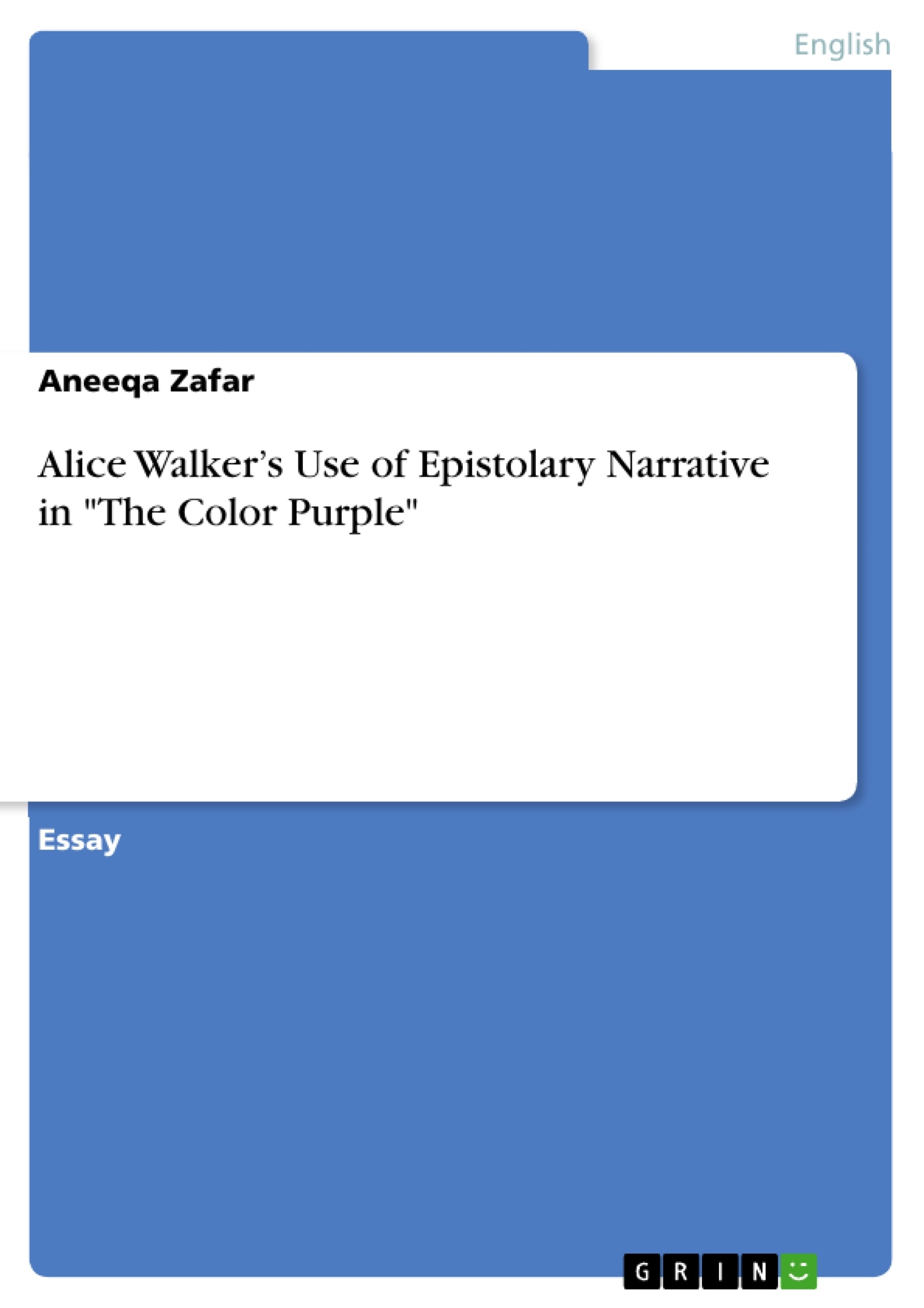This study explores the purpose of Alice Walker’s use of epistolary narrative in her most celebrated novel "The Color Purple". Being a renowned female writer, she deals with the sufferings of the black women who are suppressed. The sufferings and pains are inflicted upon them by the male members of their own society. This research paper aims at the protagonist’s self-discovery who is a black, unlettered and silenced girl of fourteen years in the beginning of the novel but she becomes an independent woman by the end of the novel. This research work will help the reader to understand other’s plight. It will also enable all the suppressed women to fix their problems in patriarchal setup.
Table of Contents
- Introduction
- Literature Review
- Research Methodology
- Celie's letters and her struggle for Freedom
- Conclusion
- References
Objectives and Key Themes
This research explores the use of epistolary narrative in Alice Walker's novel "The Color Purple" and aims to understand the protagonist's journey of self-discovery from a silenced girl to an independent woman. The study emphasizes the challenges faced by black women in a patriarchal society and how the novel tackles themes of oppression, abuse, and the power of female empowerment.
- The use of epistolary narrative in "The Color Purple"
- The struggles and oppression faced by black women in a patriarchal society
- Celie's journey of self-discovery and her struggle for freedom
- The impact of female characters like Nettie, Shug, and Sofia on Celie's growth
- The importance of individual empowerment and identity formation within a restrictive society
Chapter Summaries
The study begins with an introduction to Alice Walker and her work, highlighting the importance of "The Color Purple" and its exploration of sensitive social issues. The introduction also discusses the use of epistolary narrative, a technique popularized by Samuel Richardson in his novel "Pamela," and how Walker employs it in a fresh and relevant way to address modern issues. The research methodology and literature review provide a framework for the analysis of the novel. The core of the study focuses on the protagonist Celie's journey, exploring her letters and her struggles for freedom. The chapter delves into the different influences and experiences that shape Celie's transformation, highlighting the impact of characters like Nettie, Shug, and Sofia. The study concludes with an analysis of Celie's journey and its broader implications for understanding the human condition and the importance of female empowerment.
Keywords
The primary keywords and focus topics of this research are: Alice Walker, "The Color Purple", epistolary narrative, black women, oppression, abuse, female empowerment, self-discovery, identity formation, patriarchal society, Celie, Nettie, Shug, Sofia.
- Citation du texte
- Aneeqa Zafar (Auteur), 2015, Alice Walker’s Use of Epistolary Narrative in "The Color Purple", Munich, GRIN Verlag, https://www.grin.com/document/298761



